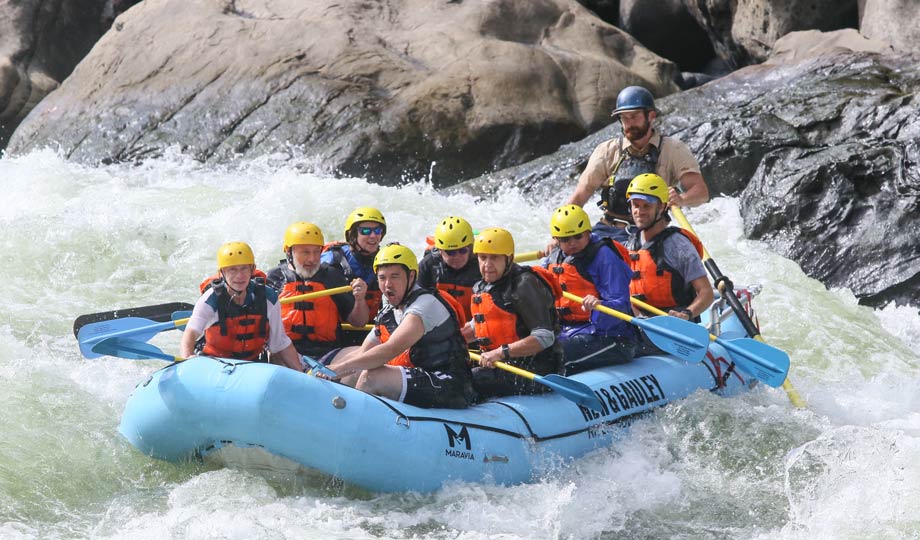By: Leo Boshardy

With the completion of a class to the National Park of American Samoa, and more than five decades spiriting College of DuPage students across the country and abroad, the College’s Field Studies and Study Abroad program has finally visited all 63 U.S. national parks recognized by the National Park Service.
“They’re not just national parks for us,” Coordinator of Experiential Education and Training Gib Egge said. “These places have a direct connection with what our students are studying. What’s important is how these places act as classrooms.”
Students traveling with the College to national parks have taken part in a wide array of unique experiences: hiking to the bottom of the Grand Canyon, sea kayaking in the Everglades of Florida, observing brown bears in their natural habitat at Katmai National Park and Preserve in Alaska, and stargazing in Great Basin National Park in Nevada, just to name a few.
Student Richard Ray has been on 14 field studies with COD.
“They take care of all the logistical stuff, and you get to do all the fun stuff,” he said about the excursions. “Lots of people go over and over again.”
Assignments during classes to national parks are paired with an interdisciplinary offering that depends on the program. Through various humanities, history and physical education courses, students have learned about best practices for backpacking in rugged terrain, survival skills in the wilderness, canoe and kayak maintenance and snowshoeing in winter terrain.
I only regret that I haven’t gone on more trips with Field Studies.
Robert Murphy
Class sizes range from 10 to 14 students depending on the regulations of the national park, with one or two faculty or staff members as guides. All travel plans are coordinated by the College, Egge said.
“We try to keep our traveling parties small to better enjoy the wilderness experience and give us a better chance of seeing wildlife.”
For Robert and Chris Murphy, who took their first class together with COD in 2005 to Grand Canyon National Park, traveling to national parks has become a regular occurrence.
“I remember cooking fresh salmon over the fire in Katmai National Park (Alaska) and climbing all the way up to dangle my feet over Angels Landing in Zion National Park (Utah),” Chris Murphy said.
“I only regret that I haven’t gone on more trips with Field Studies,” added Robert Murphy.
Classes through national parks around the country have taken students to areas of wilderness with no roads, trails or buildings, fully immersing students in the nature around them. All classes in national parks utilize a “Leave No Trace” foundation that teaches students to be mindful of the public lands they use and how to leave them in better condition than found.
McAninch Arts Center volunteer docent Luanne, who has been providing tours of the Hokusai & Ukiyo-e exhibit this summer, has been to more than 20 national parks. She emphasized the sense of community and appreciation for nature the classes instill in those that decide to travel with the College.
“Not all have the privilege to have a tool like this in their community,” she said. “You’re with this group that become your friends, and they see you at your best, and your worst. But it’s an experience you can’t buy on Amazon.”
Egge said upcoming classes include kayaking in Pictured Rocks National Lakeshore, hiking in Sequoia and Kings Canyon National Parks, snowshoeing in Yellowstone National Park, and rock climbing at Devil’s Lake State Park.
“I wish more students knew about our program before they graduate or transfer,” Egge said. “They’re not vacations. Everybody loves the national parks because they’re really the quintessential American locations.”
Pictured above: Gib Egge and students navigate white water rapids in West Virginia at New River Gorge National Park and Preserve.